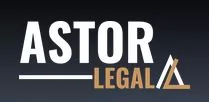A good behaviour licence allows a person who receives 13 demerit points (or 14 in the case of a professional driver) to elect to undergo a period of good behaviour for 12 months. That power comes from Section 36 of the Road Transport Act 2013 (NSW).
You are eligible for a good behaviour licence if:
- your suspension letter states you can apply for the good behaviour period;
- the suspension period has not started;
- you hold at least one unrestricted NSW Driver's Licence.
You are not eligible for a good behaviour licence if:
- your suspension letter does not mention the good behaviour period;
- your suspension period has already commenced;
- you only hold a provisional or learner licence.
How does a good behaviour licence work?
A good behaviour licence can be elected by an unrestricted driver licence holder before a demerit point suspension. The suspension letter should state that you are eligible to apply for a good behaviour period and can apply online. You must apply for a good behaviour license before the suspension period begins.
The period of good behaviour starts from the scheduled commencement of the suspension. Eligible drivers can apply for a good behaviour licence through Service NSW online, provided the application is submitted at least two business days before the suspension date. Alternatively, if the time is shorter, the application must be made in person at a Service NSW Center.
For some suspended drivers, passing the driver knowledge test is necessary. In such cases, the good behaviour period begins on the suspension date, unless the test is taken afterwards. In this case it starts on the day of passing the knowledge test.
‘P' and ‘L' plate drivers automatically receive a right to appeal their suspension to the court within 28 days of receiving their notice.
Do I Have To Go To Court To Get A Good Behaviour Licence?
You do not have to go to court to get a good behaviour licence. A good behaviour licence application can be made online or in a Service NSW centre.
If you are ineligible for a good behaviour licence you must not pay the fine. Instead you need to elect the fine to court. At court you can either argue that you are not guilty of the offence, or plead guilty and seek a ‘Section 10' good behaviour bond or dismissal.
You can read more about how to avoid a demerit point suspension here.
What are the Conditions of a Good Behaviour Licence?
The conditions of a good behaviour licence are that the driver must not receive 2 or more demerit points in the 12 months of their good behaviour period. After a suspension period, all demerit points are removed. The only exception to this is if a driver receives one demerit point during their good behaviour period. In this case, it will continue to appear on their record.
What Happens If I Breach My Good Behaviour Licence?
If you breach a good behaviour licence, you will be suspended for double the original period. The original suspension period and breach suspension period are calculated by the number of demerit points accrued.
| Demerit Points | Original Suspension | Suspension if Good Behaviour Licence Breached |
| 13 to 15 points | 3 months | 6 months |
| 16 to 19 points | 4 months | 8 months |
| 20+ points | 5 months | 10 months |
Can I get a work licence?
Contrary to popular belief, you cannot obtain a “work licence” or a “restricted licence” in NSW.
If you go over your demerit point limit, you will be suspended from driving for any purpose. This includes work-related activities or any other reason.
Driving while suspended is a serious criminal offence which carries hefty fines, further disqualification and jail time.
How to Avoid a Driver Licence Suspension?
You can avoid a driver licence suspension by electing a fine to court and:
- arguing that you are not guilty;
- plead guilty and seek a conditional release order without conviction;
- plead guilty and seek a Section 10 dismissal.
To elect the matter to court, you must use the details on the infringement notice or the penalty notice and elect online or in person at a Service NSW Registry.
If you are pleading guilty, the court considers various factors in determining whether to record a conviction. These factors include your traffic record, your need for a licence, your character, the gravity of the offence and whether you have completed a traffic offenders program. An expereinced lawyer for licence appeals will be able to advise you on what documents to prepare. You can contact Astor Legal on (02) 7804 2823 or email us at info@astorlegal.com.au.
Conditional Release Orders (CROs) are a type of good behaviour bond. The imposition of CRO can include additional conditions such as abstaining from drugs and alcohol, participating in programs or the imposition of restrictions.
Under Section 10 (1)(a) of the Crimes (Sentencing Procedure) Act 1999, a court can find the defendant guilty but discharge them without any criminal record. The court will consider factors such as the defendant's character, criminal history, medical history, the nature and circumstances of the offence and the impact of a criminal conviction on the defendant.
The content of this article is intended to provide a general guide to the subject matter. Specialist advice should be sought about your specific circumstances.

